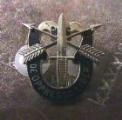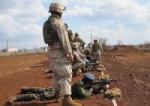....Since Khomeini’s death, Iran watchers have turned their attention to various individuals, groups, and trends in trying to determine the country’s future trajectory: From 1989 to 1997 the individual focus was on President Rafsanjani, the group focus was Islamic technocrats, and the theme was post Iran–Iraq war reconstruction. From1997 to 2005 the individual focus was on reformist PresidentMohammed Khatami, the group focus was the studentmovement, and the theme was democracy and civil society. From 2005 to present, the individual focus has been on hardline President Ahmadinejad, the group focus has been on the Revolutionary Guards, and the theme a return to revolutionary radicalism.
Yet if there has been one anchor throughout these periods and today, it is Khamenei. Both his domestic vision for Iran (more Islamic than republican) and his foreign policy views (neither confrontation nor accommodation) have prevailed. He has resisted Rafsanjani’s desire to reach amodus vivendi withWashington, Khatami’s aspiration for amore democratic state, and Ahmadinejad’s penchant for outright confrontation. Though known as a great balancer, he has consistently favored conservatives over reformists.
Like Khomeini’s, Khamenei’s writings and speeches present arguably the most accurate reflection of Iranian domestic and foreign policy aims and actions. They depict a resolute Leader with a remarkably consistent and coherent—though highly cynical and conspiratorial—world view. Whether his audience is Iranian students or foreign dignitaries, or the topic of his speech is foreign policy or agriculture, he rarely misses an opportunity to invoke the professed virtues of the 1979 revolution—justice, independence, self-sufficiency, and Islam—and to express his deep disdain for Israel (“the Zionist entity”) and opposition to the ambitions of the United States (“global arrogance”).
Based on this premise—that Khamenei means what he says and his words broadly reflect the Islamic Republic’s policies—this study is a portrait of Ayatollah Khamenei in his own words, based on a careful reading of three decades of speeches and writings. To devise a more effective approach toward Iran, a better understanding of Khamenei is essential.....













Bookmarks